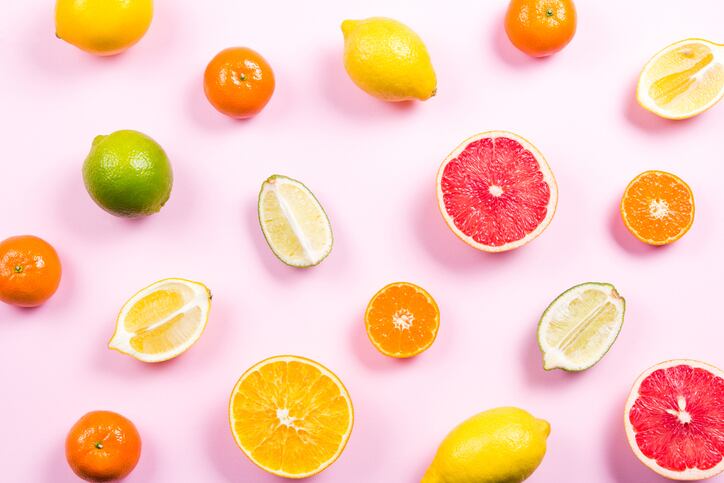The study suggests that the administration of the glycoside metabolites hesperidin and narirutin result in improved body weight and reduced intestinal inflammation, when administered prior to dextran sodium sulfate (DSS) induced colitis.
It was noted that there was a decrease in the population of lamina propria Th17 cells (which play a role in host defense against extracellular pathogens) in pre-treated models of colitis. In addition, there was a decreased abundance of commensal bacteria Alistipes putredinis and an increased abundance of Muribaculum intestinale in the faeces of the CUP-pretreated mice compared to the controls, highlighting the flavanones influence on microbiome modulation.
“Overall, these findings suggest that the pre-administration of CUP biometabolites may inhibit the development of murine colitis by modulating intestinal permeability and the gut microbiome.”, the Korean researchers conclude with regards to the results published in ‘Nutrients’.
Citrus interest
The health benefits of natural extracts have been increasingly documented, with studies suggesting their ability to prevent and treat diseases such as gastroenteritis and diabetes, due to their antimicrobial capabilities. It has been highlighted that the metabolites of such extracts may be having the overpowering influence.
CUP has been previously studied and touted for its possible health effects in treating hyperglycaemia as well as intestinal inflammation, following its observed antioxidant potential. This results from the presence of flavanones within the peel and their aglycone metabolites, produced following conversion within the gut microbiome.
Following studies reporting CUPs ability to modulate intestinal inflammation via the decreased expression of pro-inflammatory cytokines, there has been an increased interest in its ability to treat bowel disorders such as Crohn’s disease and ulcerative colitis.
Flavanone findings
The researchers utilised DSS-induced colitis murine models to investigate the potential anti-inflammatory effects of CUP.
They observed that there was an increased abundance of the flavanones hesperidin and naringenin following bioconversion of CUP, as opposed to using ethanol-based extraction.
The bioconversion of the CUP was orally administered to mice to investigate the immune suppressive capabilities of these aglycone flavanones. Over a two-week period 500 mg/kg of the metabolites were provided, prior to inducing colitis.
The results showed that in the mice that received the pre-treatment of CUP biometabolites, intestinal inflammation improved, as did body weight, and colon length ‘shortage’ was reduced (meaning colons were a healthier size). There was a significant decrease in Th17 cells following dextran sodium sulfate (DSS) treatment showing an immune suppression effect.
Pyrosequencing analysis revealed there were significant decreases in faecal populations of Alistipes putredinis, whilst populations of Muribaculum intestinale increased in these CUP-petreated mice compared to controls.
Explained
“Although the specific cause of IBD has not been elucidated yet, the pathogenic mechanisms of IBD are strongly suggested to involve microbial imbalance and abnormal immune reactions in the GI tract.”, the researchers note.
The findings suggest that CUP can modulate this characteristic dysbiosis of the gut, as well as suppress the associated heightened immune response.
“Numerous studies have reported that the abundance of beneficial bacteria, including Firmicutes, Bifidobacterium, Clostridium, Lactobacillus, and Lachnospiracea, is decreased and that of harmful bacteria, including Enterobacteriaceae, Proteobacteria, Fusobacterium, and Bacteroides, is increased in patients with CD and UC.
“Any disturbance in gut microbes following the loss of intestinal barrier function can provoke intestinal inflammation or induce an imbalance of T-cell subsets, suggesting that the maintenance of the gut microbiota composition and epithelial tight junctions by natural products is crucial for intestinal immune homeostasis.”, they explain, with regards to the significance of the findings.
With regards to the use of animal models, further longitudinal RCTs are required using a human sample to validate the findings observed, allowing them to be representative to the population. Yet, the research highlights the evidence supporting flavanones for potential IBD treatment interventions, as well as the potential of natural compounds over chemically derived forms.
Source: Nutrients
https://doi.org/10.3390/nu15020319
“Biometabolites of Citrus unshiu Peel Enhance Intestinal Permeability and Alter Gut Commensal Bacteria”
by Se-Hui Lee, Dongju Seo, Kang-Hee Lee, So-Jung Park, Sun Park, Hyeyun Kim, Taekyung Kim, In Hwan Joo, Jong-Min Park, Yun-Hwan Kang , Gah-Hyun Lim, Dong Hee Kim and Jin-Young Yang

